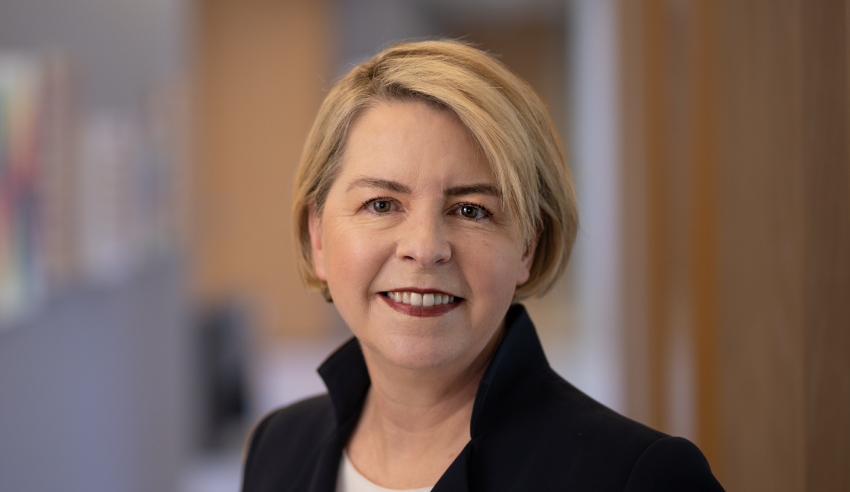Innovation, ESG, wellbeing, and the retention of staff are a few of the key priorities for this BigLaw firm post-pandemic, according to the chief executive partner of BigLaw firm Lander & Rogers.

As a result of the pandemic having had a significant impact on many businesses, law firms are increasingly needing to adopt new initiatives and are becoming more innovative to attract and retain staff.
“It’s an exciting time for us as we adapt to a changing environment and continue to find new ways to innovate and deliver services to our clients. I’m excited about the opportunities the next year will bring as we settle into new ways of working, and what that will look like for our people and clients. We’re being thoughtful and creative in how we design our future, including in our new Melbourne premises, which are technology-enabled, sustainable, collaborative, and soon-to-be WELL-accredited. We’re also investing in new premises in Brisbane and embracing new ways of working in our fast-growing Sydney office,” she said.
“Our continued investment in technology and innovation means we’re well placed to address our clients’ evolving needs in response to the changing world we’re living in. We have the structures in place to be agile and adaptable – from our approach to flexible working and adoption of technology, to the way we support and engage with our people and clients.”
Ms Collins added that the new talent Lander has been able to recently recruit – including the addition of a team from KPMG Law and former Coles managing director John Durkan – has allowed the firm to serve their clients “in more meaningful ways” and rise to the challenge of securing and retaining staff post-pandemic.
“One of the biggest challenges in the legal industry is attracting and retaining top talent. People’s priorities have changed, and they want to work for, and with, organisations that share their values.
“They are more aware of the impact of traditional models of working on mental health and the environment and expect better from employers; they have a greater appetite for career progression off the back of interruptions from the pandemic; and they better understand the need and role of innovation within organisations to operate flexibly,” she said.
“We’re all more focused on flexibility and wellbeing than ever before, with work-life integration now an expectation, not a benefit. The firms with a genuine commitment in these areas are not only retaining their existing people but also attracting top talent from other firms.”
In addition to flexibility and wellbeing, the firm is focused on a number of other issues moving forward – sexual harassment in the profession and ESG issues being particularly important for Ms Collins.
“Towards the end of 2020, we announced we had overhauled our firm’s policy relating to sexual harassment and redefined our guidelines around consensual relationships in the workplace. We hoped this move would set a benchmark for other law firms and organisations more broadly. Pleasingly, the news created a conversation that has led many organisations, including law firms and our clients, to review their practices and policies in the fight against workplace sexual harassment.
“In 2022, we continue to play an active role in this space. I am a co-convener of the Law Institute of Victoria’s Advocates of Change movement, which is due to launch later this month, to address sexual harassment in the legal profession,” she added.
“ESG performance is also becoming increasingly important for law firms and businesses more broadly. We take this commitment very seriously, recently renewing our firm’s approach to environmental sustainability. We’re a member of the Australian Legal Sector Alliance, an industry-led association promoting sustainability in the legal sector, and have committed to reducing our environmental footprint, including purchasing 100 per cent renewable energy in 2021, being carbon neutral in 2022 and a zero-waste firm by 2025.”
Furthermore, innovation and legal tech are increasingly important for BigLaw firms to be focusing on – and Lander has both a legal tech practice and a business and transformation team, iHub.
“IHub will continue to play an instrumental role in enabling our clients to adapt to new, technology-driven ways of doing business and practising law in 2022. iHub has transformed legal service delivery for our clients by implementing AI technology to simplify large-scale contract review, developing web-based platforms to automate workflows and developing new tools to allow businesses to manage their privacy and reduce cyber risk,” Ms Collins explained.
“Our LawTech Hub, which helps startups and scaleups to grow, recently opened for global applications and we also recently announced our LawTech Clinic in partnership with University of Technology Sydney (UTS) to develop digital skills in the lawyers of tomorrow. We’ve been running the LawTech Clinic with Monash University in Melbourne for the last 12 months and the program has had a fantastic response from the students who have taken part.
“Lander & Rogers is recognised as an innovative firm, which doesn’t simply extend to the way we use technology. We’re focused on driving improvement in service delivery for our clients and providing a great career experience for our people.”

Lauren is the commercial content writer within Momentum Media’s professional services suite, including Lawyers Weekly, Accountants Daily and HR Leader, focusing primarily on commercial and client content, features and ebooks. Prior to joining Lawyers Weekly, she worked as a trade journalist for media and travel industry publications. Born in England, Lauren enjoys trying new bars and restaurants, attending music festivals and travelling.